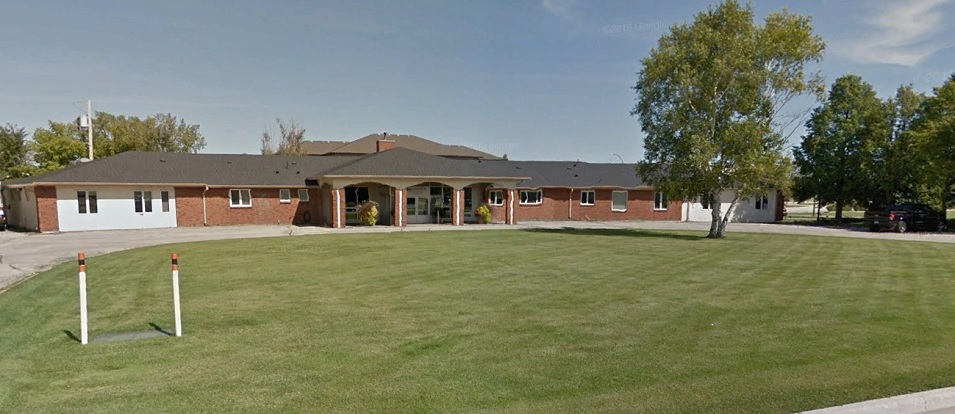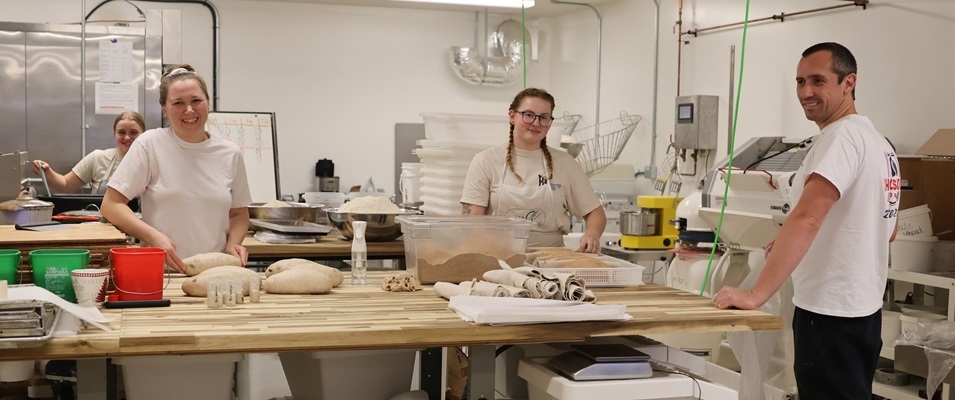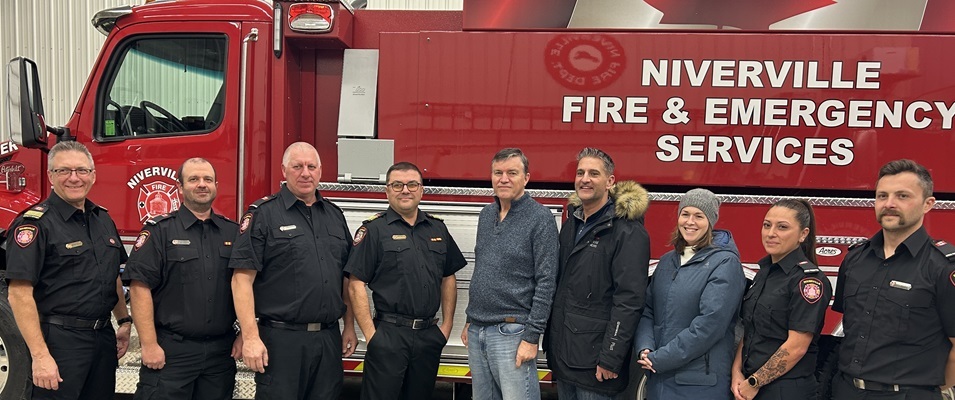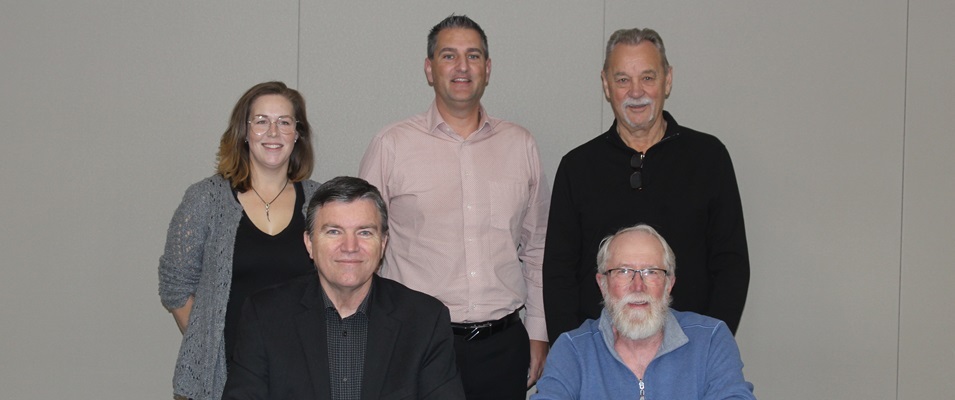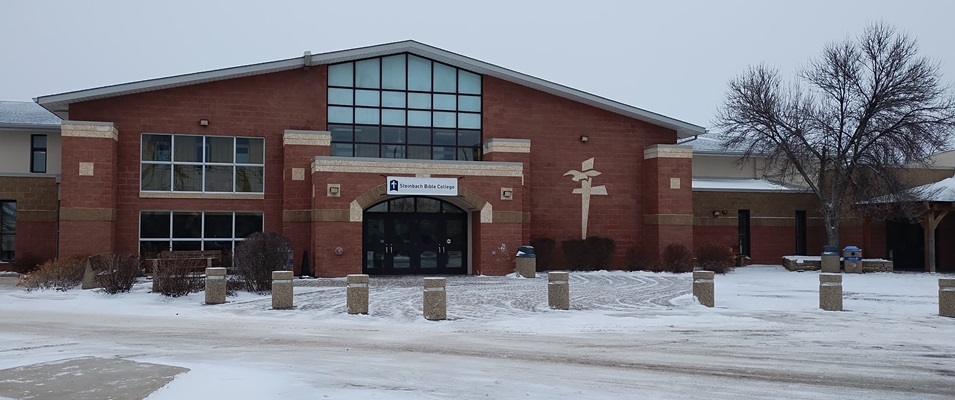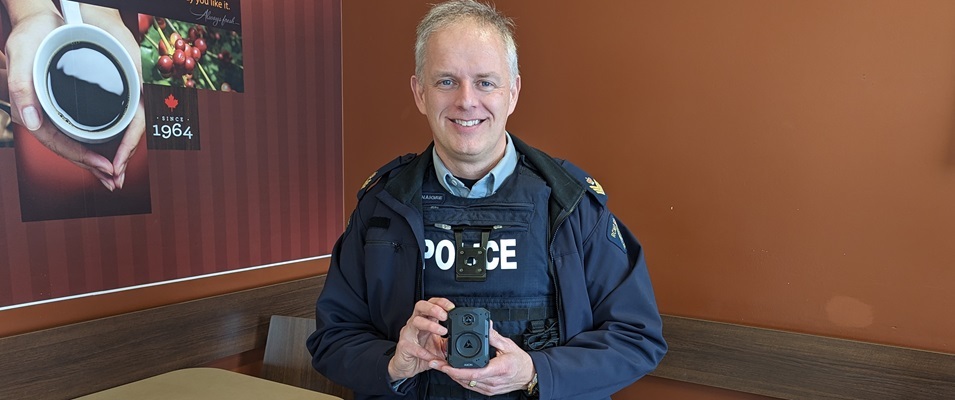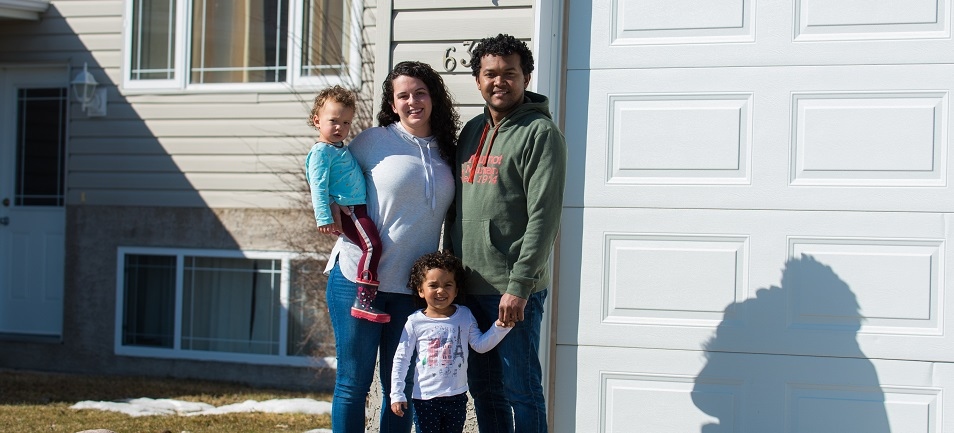
Tiffany grew up in Landmark and met Juan in the Dominican Republic while teaching English as a second language in the town of Montecristi. While Tiffany didn’t know any Spanish and Juan didn’t know English, the two found a connection with each other—and with lots of patience, practice, and the help of Google Translate, they learned how to communicate.
After they married, the two lived in the Dominican Republic for a few years until they decided to start a family and weighed the options of where to live. The newly emergent Zika virus, which causes serious birth defects including microcephaly, was threatening the region at the time and, with Tiffany seven months pregnant, they decided to make the move to Canada.
The Minayas have been married for five years and now live in Blumenort with their two children. Their story helps demonstrate the challenges faced by immigrant families who move into southern Manitoba and the support they need to help navigate the journey.
Before coming to Canada, Juan lived with his family in the Dominican Republic, a small Spanish-speaking country on the island of Hispañola, which is also home to Haiti. It is a very hot and humid, and the land sustains food production like rice, plaintains, fish, and fruit trees. The culture is very community-oriented and generally religious.
“People in the Dominican Republic are amazing, kind, and full of life,” says Juan. “Our streets are always filled with music, laughter, and very loud conversations. Family connection is very important and it is very common to find multiple generations living together in the same house. Even when they don’t live together, they come together daily and make each other a priority.”
The process of moving to Canada was difficult. The first time Juan had applied for a visitor’s visa, shortly after the couple married, he was coming to meet Tiffany’s family.
Unfortunately, he was denied.
Two years later, when Tiffany became pregnant, they decided to reapply. This time, the visa was approved.
“We had a lot of support from Tiffany’s family, who met with settlement workers at various places such as Eastman Immigrant Services (EIS) and Immigrant Centre Manitoba,” he says. “They advised us to include a letter with the second application stating my intentions of applying for permanent residency, as that may improve my chances. Tiffany’s parents also met with [MP] Ted Falk on our behalf, and he provided a letter of support to include with our second application.”
After arriving in Canada with a visitor’s visa, Juan did apply for permanent residency, a much more complicated and time-consuming application. It can take months to collect all the required information and proof of an existing relationship, which for the Minayas included pages and pages of date-stamped pictures, emails, as well as Facebook posts and conversations.
For Juan, the biggest challenging was making sure every detail was in order while enduring a fear of rejection due to missing information or making a small mistake.
The Minayas took their application back to EIS, where they looked it over and pointed out anything that needed to be fixed. It took eight months for Immigration Canada to process the permanent residency application, during which time Juan was allowed to stay in Manitoba and apply for a temporary work visa.
“Waiting those eight months was also very hard,” he says. “We were hoping and praying that all of the time, work, and money invested wouldn’t be for nothing. Thankfully, I was approved and we were able to start establishing our family here in Manitoba.”
Support for Local Immigration
Tiffany and Juan had the benefit of a strong family network to support them through their move, but they also utilized local services to ease the burden caused by language barriers, culture shock, and red-tape—services such as EIS.
EIS operates out of Steinbach and offers one-on-one and group information sessions to assist newcomers in settling in the Eastman region. They help to make the transition to a new community a positive experience, both for the newcomer and the receiving community. They assist with renewing or applying for visas or citizenship, Manitoba Health documentation, provincial child benefits, and pension.
Newcomers with children can connect with Settlement Workers in Schools (SWIS), who connect with the kids to help them adjust to their new school community and help families navigate the school system. Coordinators also work to connect these newcomers with employment and volunteer initiatives, as well as organize special events throughout the year that allow newcomers to connect with one another.
According to Marina Klassen, front desk receptionist at EIS, the majority of recent immigrants to the Eastman region come from the Philippines, Germany, India, Paraguay, and Bolivia. Upon arrival, they settle in Steinbach and its surrounding communities, including Niverville.
Klassen says some newcomers have existing Canadian families, like Tiffany and Juan, but others arrive without any support system. This can make an already challenging transition even more difficult.
“The struggles of newcomers are very diverse,” says Klassen. “And how they approach challenges may also be different from culture to culture. They may struggle with loneliness, especially when they have no family in the area. That leads to the feeling of being isolated from community. Lack of English, not being able to communicate, is a huge struggle for some. Unemployment is another factor newcomers face.”
Well-established residents, as well as previously settled immigrants, can help newer immigrants in a variety of ways. Reaching out with time and relationship can help newcomers to feel welcome and have a sense belonging. And EIS offers programs in which volunteers can make a difference helping newcomers practice speaking English.
“A ‘language buddy’ is an informal way to give the newcomer an opportunity to communicate in English,” says Klassen. “And if you know of a newcomer in your area, [you can] refer them to EIS to meet one of our settlement workers.”
Another service is the Eastman Region Immigration Partnerships (ERIP). ERIP works to create bridges between different institutions and local governments to develop inclusive communities.
Guillaume Schirru is the ERIP project coordinator. He spends his time reaching out to community leaders to establish Local Immigration Partnerships (LIPs). There are currently 77 LIPs operating in Canada. In Manitoba, there are four—in Winnipeg, Pembina Valley, Portage la Prairie, and Steinbach.
“The overall objective of an LIP is to build welcoming and inclusive communities for newcomers, where the host community plays an active role in adapting to ensure their settlement and integration,” says Schirru. “LIPs do not provide direct services, such as settlement services for newcomers, but rather they develop systemic approaches using a variety of stakeholders to support the integration of newcomers.”
Newcomers to our area produce a host of positive effects, Schirru points out. They strengthen rural communities, increase the number of taxpayers, and enhance the workforce to fill vacant positions.
When Schirru develops a partnership, it means he’s working to ensure immigrants receive equal employment and education opportunities, affordable and decent homes, opportunities for social engagement, and municipal features and services that are sensitive to them. Overall, the goal is to establish them in communities with a positive attitude toward immigrants and cultural diversification. These are the characteristics of a welcoming community, which Schirru says are actionable and can be developed strategically.
Schirru recently made a presentation to the RM of Ritchot’s municipal council and was well received. Council went on to pass a motion to support a Welcoming Communities Initiative.
A similar presentation was made to the Town of Niverville, and Mayor Myron Dyck was invited to emcee a banquet in Niverville hosted by ERIP for immigrants in our area.
Unfortunately, that banquet had to be cancelled because of the COVID-19 pandemic. But Dyck says that he and the rest of Niverville’s council welcome future engagement with ERIP.
“We have more and more immigrants moving to our country, our province, and our community every year,” says Mayor Dyck. “Eastman Immigration helps support those who move to our community and council would welcome the opportunity to sit down with them to hear what their vision for a partnership would look like.”
Immigration Challenges Persist
Though the presence of services like EIS and ERIP deliver tangible help, persistent challenges seem unavoidable, such as language.
Juan primarily spoke Spanish until coming to Canada and attending English classes through Red River College’s Language Training Centre in Steinbach. These classes are free for permanent residents and refugees.
Juan says he has always felt welcome in Canada, although he admits he feels that the biggest challenge facing immigrants is the language barrier.
“I can’t begin to express how incredibly welcoming and accepting everyone has been,” he says. “The people I have met have always expressed interest in talking with me, knowing how I am doing, inviting me to events and being of service in so many ways. [But even though] many people did their best to include me in their conversations, it is hard to feel included when you don’t understand much of what is being said. Beyond that, it is very hard to find a job when you are learning English.”
Even with a basic understanding of English, most work environments require a person to quickly learn a whole new set of vocabulary specific to that job. Similarly, the mere act of buying groceries or making an appointment at a bank is difficult and filled with words that require a contextual awareness of finance in Canada.
“While my experience with the people here in Canada has been nothing but good, many of them don’t realize that they need to slow down when speaking to a newcomer,” Juan adds. “The fast pace of speaking can be extremely intimidating.”
Another challenge of immigration, perhaps specific to people coming from countries near the equator, is the climate. The long months of extreme cold mean that people keep to themselves a lot. Even seasoned Canadians can identify with the feeling of being trapped and lonely, as people in our part of the world don’t go out as much in winter.
Rural communities where the people and services are already intimate and well established can add a chill even more poignant than the intimidating cold.
“The towns [here] are small and there is less of a sense of community compared to where I am from,” Juan says. “When you add the cold of winter on top of that, there is very little interaction with others and it is easy to feel isolated and alone… Being a recent immigrant is never easy, no matter where you live. Manitobans are a very welcoming and helpful people, but I would encourage Manitobans to continue to be so and to continuously reach out to their immigrant neighbours. Invite them for coffee, to parties or other activities. Do what you can to connect them to the community around them.”
Immigrants Feel Pandemic Anxiety Differently
Despite cultural and geographical differences, humankind the world over is in the midst of sharing an undesired yet unifying experience. Almost no one can claim immunity to the anxiety brought on by the COVID-19 pandemic
Immigrants, however, feel a unique anxiety. Like everyone else, they have an awareness of their immediate social circumstances and its set of public health orders, but the also feel connected to what’s going on in the country they left behind.
The Minayas have been in close contact with family and friends in the Dominican Republic. Tiffany explains that fear has impacted society in the Dominican Republic in a different way, since the national infrastructure isn’t as developed as Canada’s.
“It didn’t take long for panic and fear of the coronavirus to quickly turn into hoarding, just as it did here in Canada,” she says. “Such actions, however, are far more dangerous and impactful in a country such as the DR. The shelves in supermarkets and pharmacies quickly emptied, but with little stock to replenish them. The majority of the population rarely keeps more than a day’s, or a few days’, worth of food stocked in their houses. Even medicine and clean drinking water are often bought on a daily or weekly basis.”
The Dominican Republic struggles with food supply shortages and lack of clean water, so closing businesses and shops isn’t a reasonable option when most survive on their day-to-day income with no help from the government. Public hospitals are poorly funded and poorly equipped. While private clinics are in better shape, few people can afford the more costly care they provide.
“I have been in contact more with my family and friends in the Dominican Republic since the first case of COVID-19 was detected there, mostly through video chat,” says Juan. “One of the things that worries me the most is that someone from my family could get sick and that I won’t be able to be present to help and support them. Because of the distance, it is hard to find practical ways to help, but we do try to support them both financially and emotionally as best as we can.”
And the social distancing that comes with COVID-19 doesn’t help much with the inevitable feelings of isolation. After waiting many months for winter to end, now the Minaya family still isn’t able to go out and enjoy spring like they would have hoped.
“We are thankful to be in a place where we have access to good healthcare and where the government is being proactive to protect the people who live here,” says Juan. “We know that the social distancing is for a good purpose, and knowing that we are helping make a positive difference makes it easier to do.”






